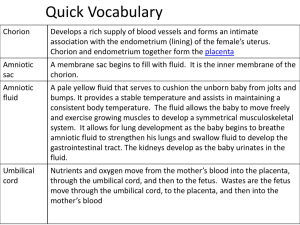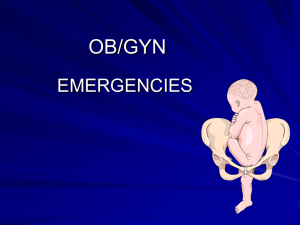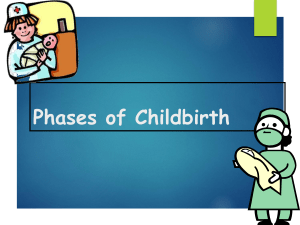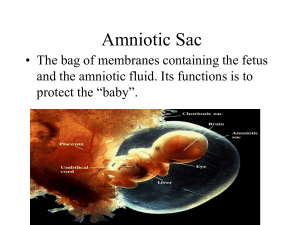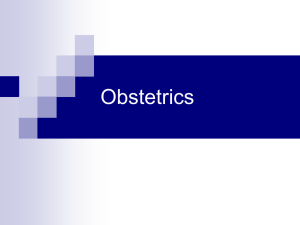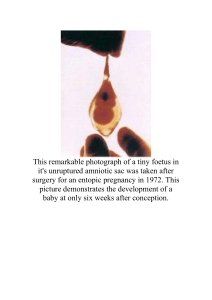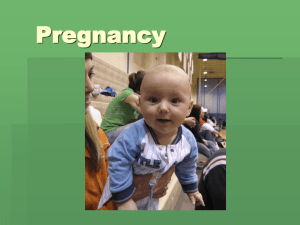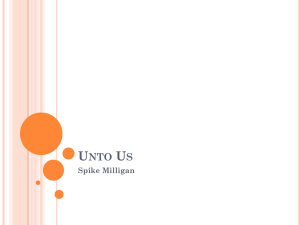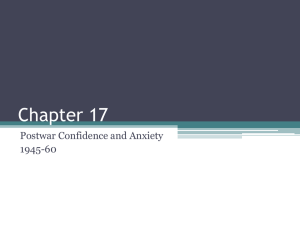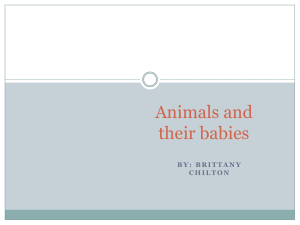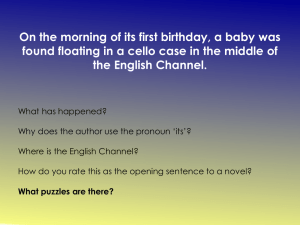Baby Support System
advertisement
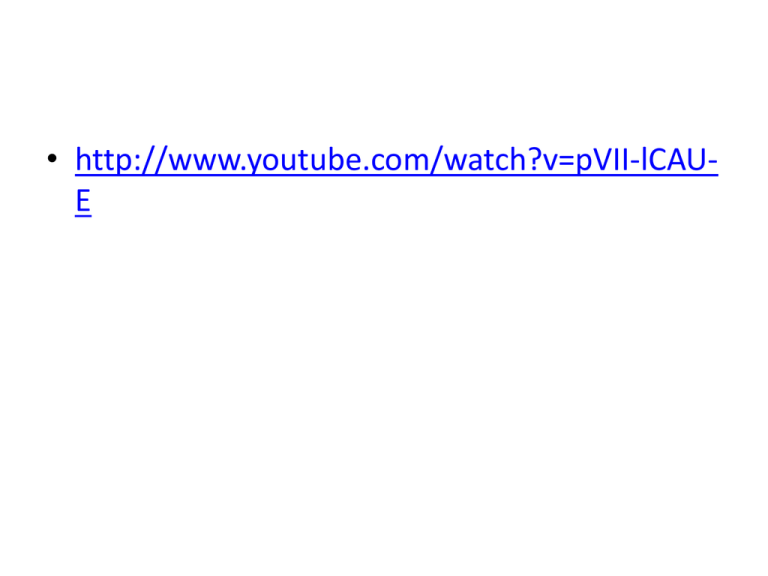
• http://www.youtube.com/watch?v=pVII-lCAUE Baby’s Support System Aims • All will be able to name the main parts of the baby’s support system • Some will understand the function of at least two areas of the baby’s support system • A few will be able to describe the functions of the placenta and amniotic sac in detail. What supports the baby in the womb? • • • • • • Umbilical cord Mother’s cervix Amniotic sac Amniotic fluid Uterus Placenta http://www.5min.com/Video/What-is-APlacenta-96171296 Placenta – is attached to the wall of the uterus and the other side of the baby via the umbilical cord. It develops from the chorion In the third stage of labour the placenta (afterbirth) is delivered. Functions of the placenta :• transfers oxygen from the mother to the foetus and removes carbon dioxide and waste products from the foetus’s blood. •It carries nutrients •It passes antibodies •Allows the foetus to eat, breathe and dispose of waste. •Produces hormones that maintain pregnancy. Amniotic sac and fluid Inside the uterus there is a sac (amniotic sac). The main purpose of the sac is to ensure the foetus grows safely. The main functions of the fluid are;•Allows the foetus to float freely in the early stages. •Keeps the foetus at a constant warm body temperature. •Supports, cushions and protects the foetus from knocks, falls and bangs. • The uterus is a strong muscle that keeps the baby secure and protected. It expands in size. During labour the uterus contracts to push the baby out. • The umbilical cord is the baby’s lifeline. It connects the baby to the placenta, and it carries blood and nutrients to the baby and removes waste products. • The cervix and cervical mucus – The cervix is the neck of the womb. During pregnancy it is blocked with a mucus plug. This protects the uterus from infections. Key words Chorion = the outer layers of cells that develops from a fertilised egg. Chorionic villi = blood vessels where nutrients/waste are exchanged from the mother’s and baby’s blood. What is the difference between an embryo and a foetus? At conception a ZYGOT is formed which is a tiny bundle of cells. This keeps growing until implantation. EMBRYO: From implantation until 8 weeks the developing baby is called an embryo. FOETUS: At 8 weeks the developing baby has everything that it will need when it is born and is now called a foetus. Design a fact sheet that explains the baby’s support system. Remember this includes the placenta, amniotic sac and fluid, cervix, umbilical cord and uterus. The idea is that a fact sheet is to provide information in a clear and precise way. It gives the ‘facts’ and does not contain pointless information!
